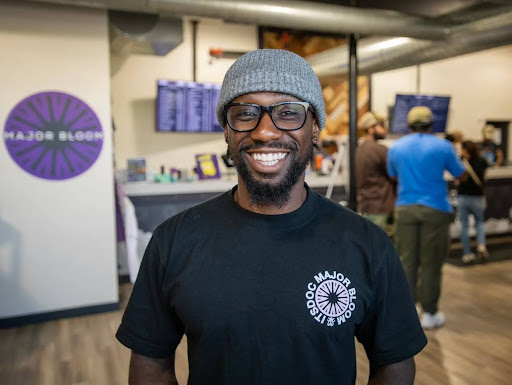
Father’s Day should be simple. A celebration of connection, guidance, and love between a father and his children. But for many — especially fathers of color navigating the family court system — it can be anything but.
Two brown boys I love deeply had their championship games scheduled on Father’s Day this year. A moment that should be the source of pride — shared wins, sweaty hugs, photos on the field — was clouded by a reality far too common, yet rarely talked about: parental alienation.
The Game Behind the Games
Let’s talk numbers. Only five percent of divorces go to trial. And when they do, they’re often messy, more so when one parent, often the mother, leverages societal privilege and legal ambiguity to weaponize the children against the father. In my case, their white mother, aided by an attorney and certain members of her family, has used her whiteness as a tool of control, not to support our children, but to attempt to erase me from their lives.
This isn’t just painful. It’s systemic.
Parental Alienation by Design
Parental alienation doesn’t begin in a courtroom. It starts in the cracks of human hurt, where bitterness festers and resentment toward the other parent becomes more powerful than love for the child. That’s when the manipulation begins: withholding phone calls, skipping agreed-upon visits, spreading falsehoods in the community, making false criminal accusations that are later dismissed. And, maybe most damaging of all, badmouthing a parent directly to their own kids.
What happens when a child begins to believe that one half of their DNA is “bad”? What damage does that do to their self-image? Their sense of safety? Their trust in love?
In some states, parental alienation is illegal. But in Massachusetts—especially Worcester County—the system turns a blind eye. When 5 out of 6 Family Court judges are white, middle-aged women raised in predominantly white communities, how can we be sure they understand what’s really happening to Black and Brown families under their jurisdiction?
Fighting for What Matters
Here’s what they don’t tell you: just because a parent pays child support doesn’t mean they’re present. And just because a parent is owed child support doesn’t mean they’re right.
Some people justify keeping a father away from his kids by pointing to outdated tropes: “He’s dangerous.” “He’s unstable.” “He doesn’t care.” But what happens when those narratives are false, used not to protect the child, but to punish the other parent?
The irony? I built a business in the same city where I’ve been targeted. Major Bloom operates every single day, built by and for people just like me — fathers, entrepreneurs, survivors of a system that too often silences us. We’ve served thousands of customers, built jobs for marginalized communities, and changed the face of local cannabis. But still, I have to fight for the right to attend a game. A holiday. A moment.
A Call for Empathy and Accountability
To the parents weaponizing their children: pause. Ask yourself how your child might feel when they’re forced to carry your emotional weight, when they’re not allowed to show love for both parents, when they miss out on moments like a championship game on Father’s Day, not because of scheduling, but because of ego.
Parental alienation is not just a private matter. It’s a form of emotional abuse. And until our court systems, schools, and professional service providers are trained to recognize it and address it, it will continue.
Final Thoughts
I’m not here to play the victim. I’m here to tell the truth because too many fathers, especially Black and Brown ones, have been silenced.
Parental alienation hides behind courtroom jargon, polite community gossip, and the false image of “the good parent.” But real parenting shows up in the quiet hours. The rides to practice. The awkward school plays. The game-day cheers. And yes, even in showing up for the fights nobody sees.
This Father’s Day, I’m still fighting. For my boys. For my presence. For our bond.
And I won’t stop until the courts, the culture, and the community understand:
Our kids deserve both parents, especially the one who never gave up.
